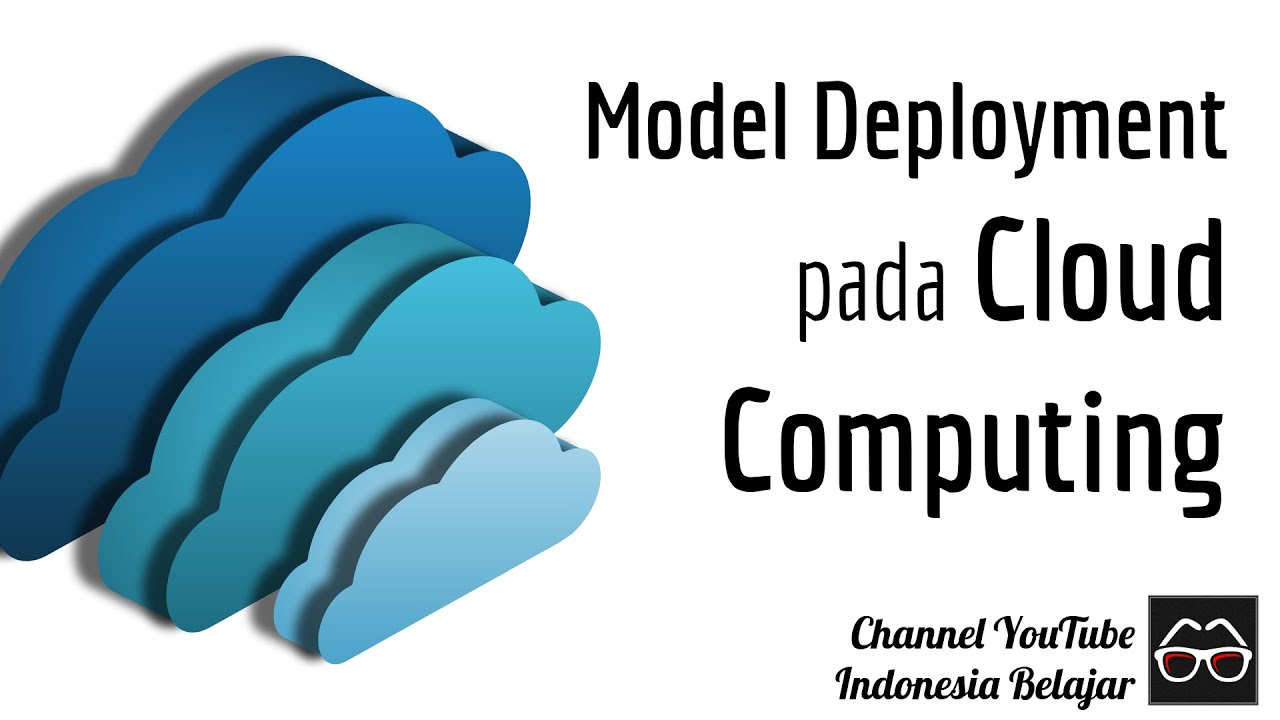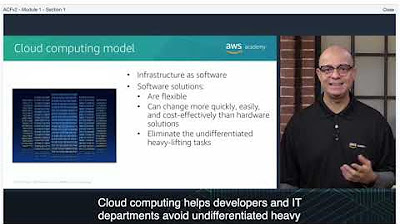Cloud Deployment Models - Public Cloud, Private Cloud, Hybrid Cloud & Community Cloud
Summary
TLDRThis video provides a focused overview of four cloud deployment models: public, private, hybrid, and community cloud. It explains how public cloud promotes multi-tenancy, while private cloud ensures data security for large organizations. Hybrid cloud combines both public and private models for optimal flexibility, making it the most popular choice for large businesses. Lastly, the community cloud model allows organizations with common requirements to share cloud infrastructure. The video highlights use cases, cost comparisons, and concludes with examples like KYC in banking and data sharing among government agencies.
Takeaways
- ☁️ Public cloud is a popular deployment model where infrastructure is hosted by cloud service providers and shared by multiple organizations, promoting multi-tenancy.
- 💰 Public cloud is cost-effective but may not meet data security and regulatory requirements for large organizations.
- 🔒 Private cloud provides exclusive infrastructure for an organization, solving security and compliance concerns but limiting some cloud benefits.
- 🏢 Private cloud can be on-premise (within the organization's own data center) or off-premise (hosted by a cloud provider but exclusive to one organization).
- 🔄 Hybrid cloud combines at least one public cloud with one private cloud, offering a balance between security and flexibility.
- 🏗️ Organizations can use hybrid clouds to keep critical applications on-premise and less important apps on the public cloud.
- 👥 Community cloud allows organizations with similar needs to share cloud infrastructure, reducing duplication of efforts and costs.
- 🏦 A potential use case for community clouds is sharing customer data between banks for KYC purposes, reducing repetitive processes.
- 📊 Another community cloud use case could be for government agencies to share data, improving governance.
- ⚖️ Community cloud's cost lies between public and private cloud setups, offering a middle-ground solution.
Q & A
What is the public cloud deployment model?
-The public cloud deployment model involves infrastructure hosted at cloud service providers' physical locations. It is shared by multiple individuals or organizations, promoting multi-tenancy, and is cost-effective. Servers are shared, and it's one of the most popular and early cloud models.
What are the key limitations of the public cloud for large organizations?
-The public cloud, while cost-effective, does not always meet the needs of large organizations due to data security, privacy, jurisdictional, and regulatory requirements.
How does the private cloud deployment model address the shortcomings of the public cloud?
-The private cloud is operated exclusively for a single organization, ensuring higher security, privacy, and regulatory compliance. It is not shared with any other organization, which addresses data protection concerns.
What are the two main variants of the private cloud?
-The two main variants of the private cloud are on-premise, where the infrastructure is hosted within the organization's data center, and off-premise, where the infrastructure is hosted on the cloud service provider's physical boundaries but exclusively for one organization.
Who can operate the private cloud infrastructure?
-The private cloud infrastructure can be operated either by the organization itself or by the cloud service provider.
What is the hybrid cloud deployment model?
-The hybrid cloud is a combination of at least one public cloud and one private cloud, where the private cloud can be either on-premise or off-premise. It allows organizations to keep core business applications and sensitive data in a private cloud while hosting less critical applications in a public cloud.
Why is the hybrid cloud model popular among large organizations?
-The hybrid cloud model is popular because it allows organizations to balance data security and regulatory compliance with the cost-effectiveness and scalability of the public cloud. Critical data can be kept in a private cloud, while non-core data is hosted in the public cloud.
What is a community cloud, and what are its potential use cases?
-A community cloud is a model where multiple organizations with common requirements share a cloud infrastructure. It can be managed by one or multiple organizations or by a cloud service provider. Potential use cases include sharing customer onboarding information (like KYC) between banks or data sharing between government agencies.
How does the cost of a community cloud compare to public and private clouds?
-The cost of a community cloud typically falls between that of a public cloud and a private cloud, as it involves shared infrastructure but is more secure and tailored to specific organizational needs.
What is an example of how a community cloud could be useful for financial institutions?
-A community cloud could be useful for banks by allowing them to share Know Your Customer (KYC) information, reducing duplicated efforts and costs associated with customer onboarding and periodic checks.
Outlines

Esta sección está disponible solo para usuarios con suscripción. Por favor, mejora tu plan para acceder a esta parte.
Mejorar ahoraMindmap

Esta sección está disponible solo para usuarios con suscripción. Por favor, mejora tu plan para acceder a esta parte.
Mejorar ahoraKeywords

Esta sección está disponible solo para usuarios con suscripción. Por favor, mejora tu plan para acceder a esta parte.
Mejorar ahoraHighlights

Esta sección está disponible solo para usuarios con suscripción. Por favor, mejora tu plan para acceder a esta parte.
Mejorar ahoraTranscripts

Esta sección está disponible solo para usuarios con suscripción. Por favor, mejora tu plan para acceder a esta parte.
Mejorar ahoraVer Más Videos Relacionados

Cloud 04 | Deployment Model pada Cloud Computing | Belajar Cloud Computing | Komputasi Awan

Módulo 5 - Deployment Models

Cloud Computing In 6 Minutes | What Is Cloud Computing? | Cloud Computing Explained | Simplilearn

CEH v13 Module 19 – Cloud Computing

Cloud Computing Deployment Models - Private Cloud, Hybrid Cloud, and Multicloud

Module 1 - Section 1 : Introduction to Cloud Computing
5.0 / 5 (0 votes)
